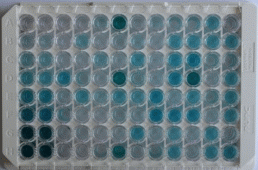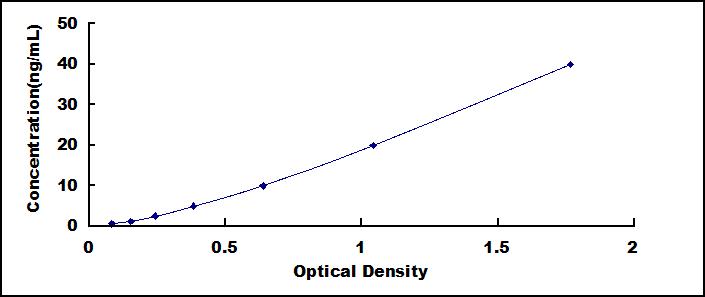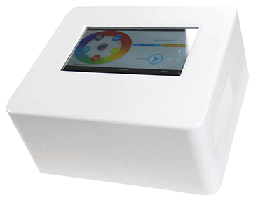Packages (Simulation)

Reagent Preparation

Image (I)
Image (II)
Certificate


ELISA Kit for Amiloride Binding Protein 1 (ABP1)
AOC1; DAO; KAO; Histaminase; Kidney amine oxidase; Diamine Oxidase; Amiloride-sensitive amine oxidase; Amine oxidase copper domain-containing protein 1
- Product No.SEA656Ra
- Organism SpeciesRattus norvegicus (Rat) Same name, Different species.
- Sample TypeSerum, plasma, tissue homogenates, cell lysates and other biological fluids
- Test MethodDouble-antibody Sandwich
- Assay Length3h
- Detection Range0.625-40ng/mL
- SensitivityThe minimum detectable dose of this kit is typically less than 0.223ng/mL.
- DownloadInstruction Manual
- UOM 48T96T 96T*5 96T*10 96T*100
- FOB
US$ 479
US$ 684
US$ 3078
US$ 5814
US$ 47880
For more details, please contact local distributors!
Specificity
This assay has high sensitivity and excellent specificity for detection of Amiloride Binding Protein 1 (ABP1).
No significant cross-reactivity or interference between Amiloride Binding Protein 1 (ABP1) and analogues was observed.
Recovery
Matrices listed below were spiked with certain level of recombinant Amiloride Binding Protein 1 (ABP1) and the recovery rates were calculated by comparing the measured value to the expected amount of Amiloride Binding Protein 1 (ABP1) in samples.
| Matrix | Recovery range (%) | Average(%) |
| serum(n=5) | 82-89 | 86 |
| EDTA plasma(n=5) | 78-101 | 95 |
| heparin plasma(n=5) | 85-103 | 93 |
Precision
Intra-assay Precision (Precision within an assay): 3 samples with low, middle and high level Amiloride Binding Protein 1 (ABP1) were tested 20 times on one plate, respectively.
Inter-assay Precision (Precision between assays): 3 samples with low, middle and high level Amiloride Binding Protein 1 (ABP1) were tested on 3 different plates, 8 replicates in each plate.
CV(%) = SD/meanX100
Intra-Assay: CV<10%
Inter-Assay: CV<12%
Linearity
The linearity of the kit was assayed by testing samples spiked with appropriate concentration of Amiloride Binding Protein 1 (ABP1) and their serial dilutions. The results were demonstrated by the percentage of calculated concentration to the expected.
| Sample | 1:2 | 1:4 | 1:8 | 1:16 |
| serum(n=5) | 80-90% | 81-99% | 93-101% | 91-105% |
| EDTA plasma(n=5) | 94-102% | 83-94% | 81-97% | 92-101% |
| heparin plasma(n=5) | 93-102% | 95-102% | 87-101% | 86-94% |
Stability
The stability of kit is determined by the loss rate of activity. The loss rate of this kit is less than 5% within the expiration date under appropriate storage condition.
To minimize extra influence on the performance, operation procedures and lab conditions, especially room temperature, air humidity, incubator temperature should be strictly controlled. It is also strongly suggested that the whole assay is performed by the same operator from the beginning to the end.
Reagents and materials provided
| Reagents | Quantity | Reagents | Quantity |
| Pre-coated, ready to use 96-well strip plate | 1 | Plate sealer for 96 wells | 4 |
| Standard | 2 | Standard Diluent | 1×20mL |
| Detection Reagent A | 1×120µL | Assay Diluent A | 1×12mL |
| Detection Reagent B | 1×120µL | Assay Diluent B | 1×12mL |
| TMB Substrate | 1×9mL | Stop Solution | 1×6mL |
| Wash Buffer (30 × concentrate) | 1×20mL | Instruction manual | 1 |
Assay procedure summary
1. Prepare all reagents, samples and standards;
2. Add 100µL standard or sample to each well. Incubate 1 hours at 37°C;
3. Aspirate and add 100µL prepared Detection Reagent A. Incubate 1 hour at 37°C;
4. Aspirate and wash 3 times;
5. Add 100µL prepared Detection Reagent B. Incubate 30 minutes at 37°C;
6. Aspirate and wash 5 times;
7. Add 90µL Substrate Solution. Incubate 10-20 minutes at 37°C;
8. Add 50µL Stop Solution. Read at 450nm immediately.
GIVEAWAYS
INCREMENT SERVICES
-
 Single-component Reagents of Assay Kit
Single-component Reagents of Assay Kit
-
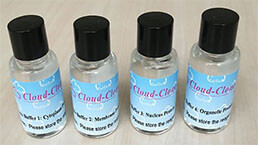 Lysis Buffer Specific for ELISA / CLIA
Lysis Buffer Specific for ELISA / CLIA
-
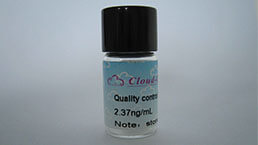 Quality Control of Kit
Quality Control of Kit
-
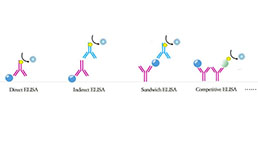 ELISA Kit Customized Service
ELISA Kit Customized Service
-
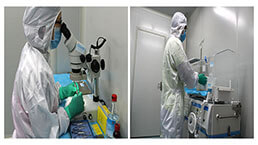 Disease Model Customized Service
Disease Model Customized Service
-
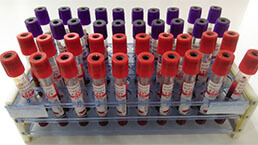 Serums Customized Service
Serums Customized Service
-
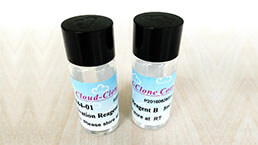 TGFB1 Activation Reagent
TGFB1 Activation Reagent
-
 Real Time PCR Experimental Service
Real Time PCR Experimental Service
-
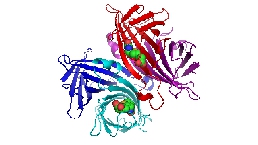 Streptavidin
Streptavidin
-
 Fast blue Protein Stain solution
Fast blue Protein Stain solution
-
 Single-component Reagents of FLIA Kit
Single-component Reagents of FLIA Kit
-
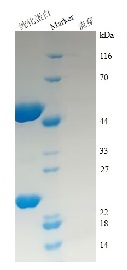 Streptavidin-Agarose Beads
Streptavidin-Agarose Beads
| Magazine | Citations |
| Applied Clay Science | Effects of copper-exchanged montmorillonite, as alternative to antibiotic, on diarrhea, intestinal permeability and proinflammatory cytokine of weanling pigs Cas.zju: Source |
| Phytomedicine.? | A multi-component herbal preparation, STW 5, shows anti-apoptotic effects in radiation induced intestinal mucositis in rats Pubmed:25022208 |
| Oxid Med Cell Longev | Elevation of HO-1 Expression Mitigates Intestinal Ischemia-Reperfusion Injury and Restores Tight Junction Function in a Rat Liver Transplantation Model PubMed: 26064429 |
| Pancreatology. | Early prediction of intestinal mucosal barrier function impairment by elevated serum procalcitonin in rats with severe acute pancreatitis. Pubmed:26804005 |
| Biochimica et Biophysica Acta (BBA)-General Subjects | Modulation of gut microbiota contributes to curcumin-mediated attenuation of hepatic steatosis in rats pubmed:28341485 |
| Journal of Controlled Release | A DPP-IV-resistant glucagon-like peptide-2 dimer with enhanced activity against radiation-induced intestinal injury pubmed:28522195 |
| Advances in Experimental Medicine and Biology | Serum Diamine Oxidase in Pseudoallergy in the Pediatric Population pubmed:28804811 |
| PLoS One | Protective effect of aplysin on liver tissue and the gut microbiota in alcohol-fed rats pubmed:28622357 |
| Nutrients | Protective Effect of Aplysin Supplementation on Intestinal Permeability and Microbiota in Rats Treated with Ethanol and Iron Pubmed:29861488 |
| Scientific Reports | Pregnancy-associated diamine oxidase originates from extravillous trophoblasts and is decreased in early-onset preeclampsia Pubmed:29679053 |
| British Journal of Nutrition | Postoperative symbiotic in patients with head and neck cancer: a double-blind randomised trial Pubmed:29277158 |
| Food & Function | The effect of fucoidan on intestinal flora and intestinal barrier function in rats with breast cancer Pubmed:29384543 |
| 硕士论文 | LOCALIZATION OF COPPER-CONTAINING AMINE OXIDASE ENZYMES IN THE BLOOD |
| International Journal of Clinical and Experimental Medicine | Effects of fecal microbiota transplantation and joint application of probiotics on rats with alcoholic liver disease |
| Journal of Functional Foods | Potent anti-inflammatory activity of polysaccharides extracted from Blidingia minima and their effect in a mouse model of inflammatory bowel disease |
| Acta Diabetologica | Modulation of gut microbiota contributes to effects of intensive insulin therapy on intestinal morphological alteration in high-fat-diet-treated mice Pubmed: 31749050 |
| Biomed Research International | Liraglutide Attenuates Nonalcoholic Fatty Liver Disease by Modulating Gut Microbiota in Rats Administered a High-Fat Diet Pubmed: 32149099 |
| FASEB JOURNAL | HMGB1‐associated necroptosis and Kupffer cells M1 polarization underlies remote liver injury induced by intestinal ischemia/reperfusion in rats Pubmed: 31961020 |
| JOURNAL OF ETHNOPHARMACOLOGY | The effect of Poria cocos ethanol extract on the intestinal barrier function and intestinal microbiota in mice with breast cancer Pubmed: 33039631 |
| Cell Death Discovery | Fecal microbiota transplantation from patients with autoimmune encephalitis modulates Th17 response and relevant behaviors in mice Pubmed: 32821439 |
| The Journal of Nutritional Biochemistry | Effects of fucoidan on tumor prevention and gut flora |
| Chemical Biology & Dug Design | Design and development of novel fasudil derivatives as potent anti‐breast cancer agent that improves intestinal flora and intestinal barrier function in rats 34587363 |
| Journal of Functional Foods | Bovine lactoferricin ameliorates intestinal inflammation and mucosal barrier lesions in colitis through NF-κB/NLRP3 signaling pathways |
| Stem Cell Research & Therapy | Transplanted hair follicle mesenchymal stem cells alleviated small intestinal ischaemia–reperfusion injury via intrinsic and paracrine mechanisms in a rat model |

